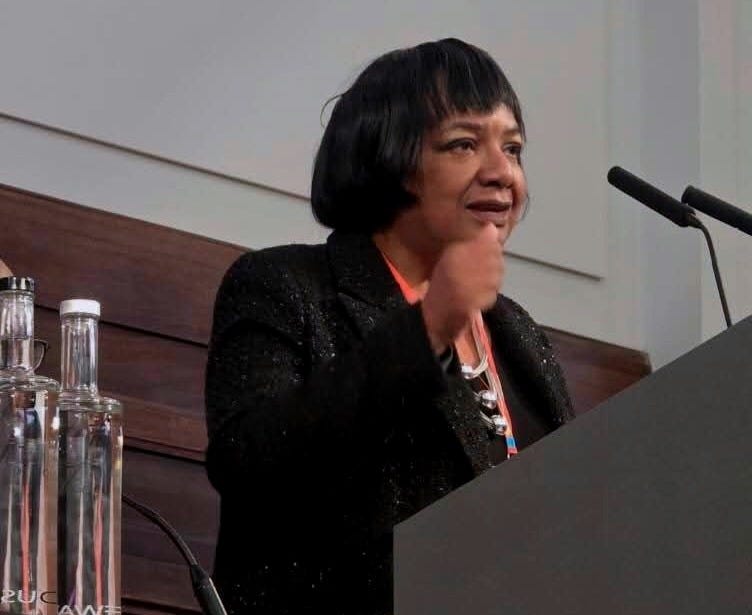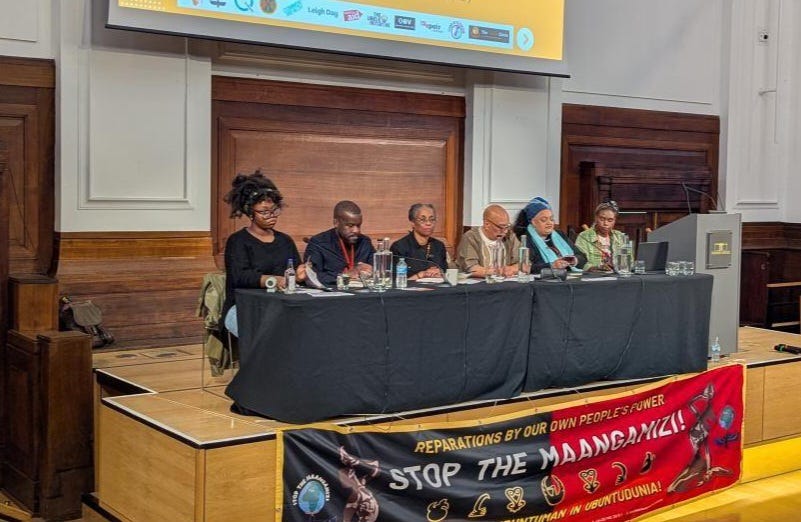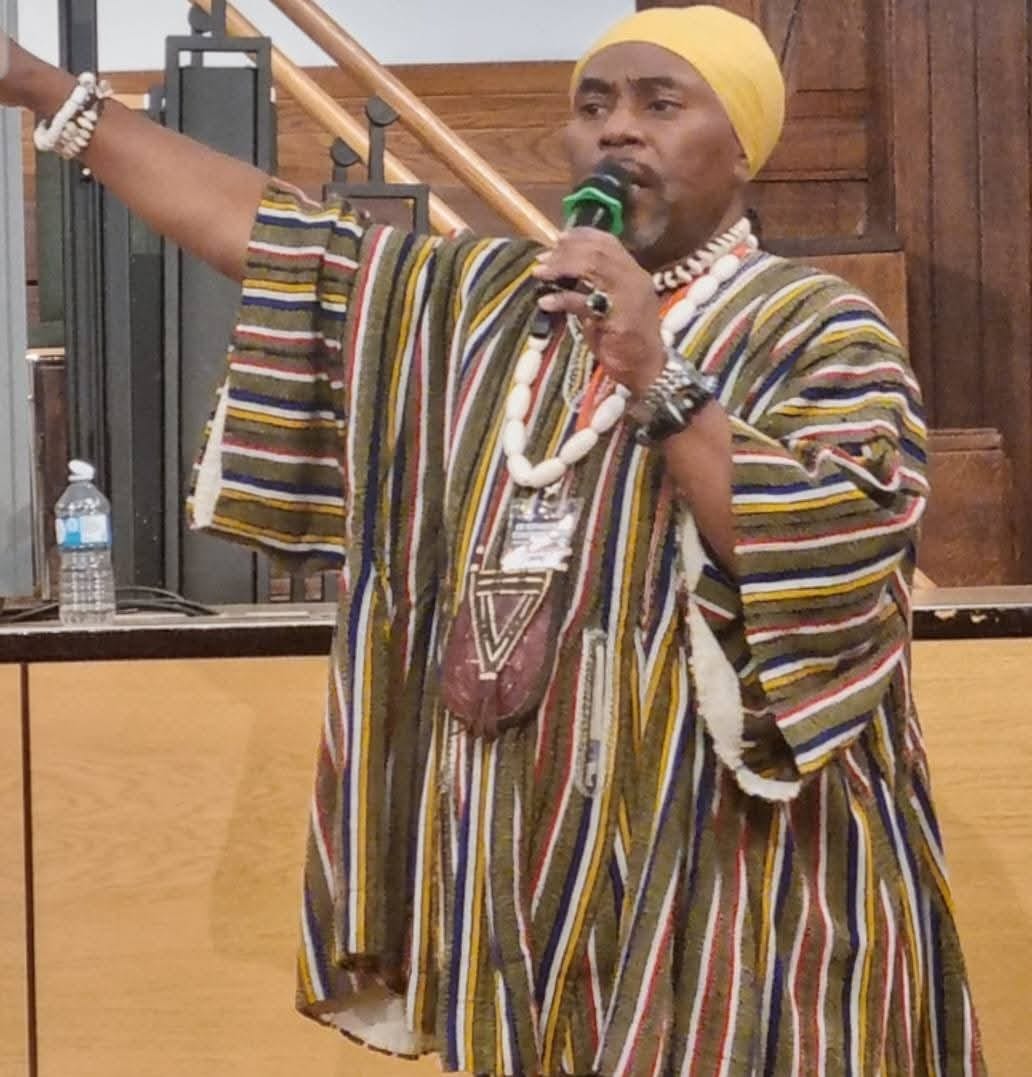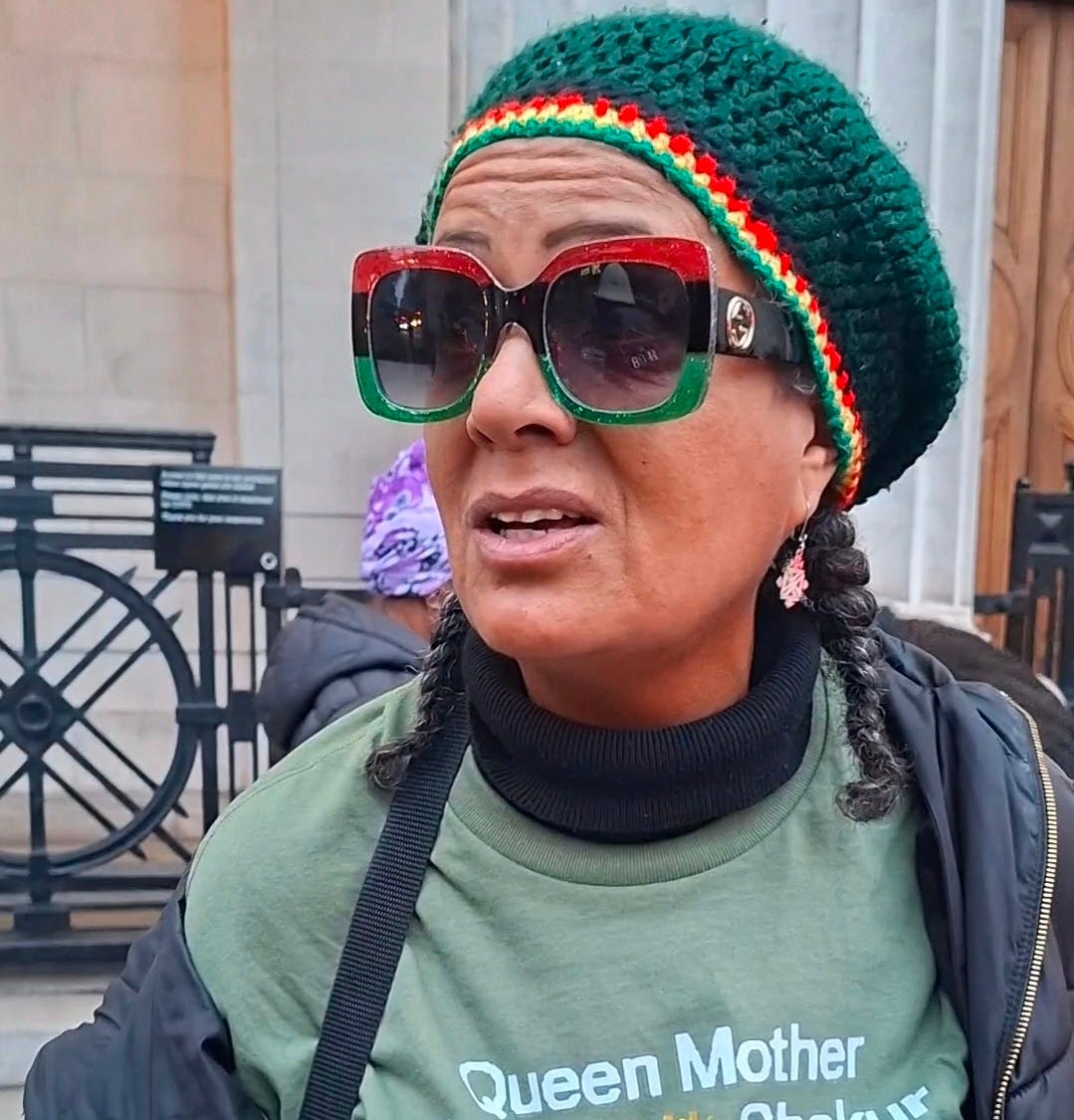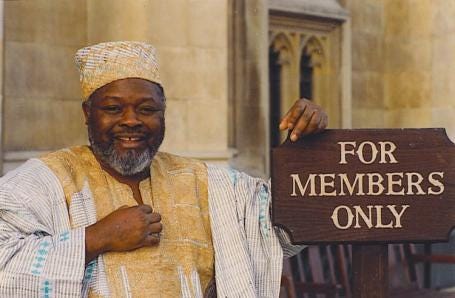"Chatting fart" and calls for change: Inside the UK Reparations Conference urging Britain to face its colonial past
Amid moments of passion and debate, the UK Parliamentary Reparations Conference brought renewed urgency to calls for justice over Britain’s colonial past
The All-Party Parliamentary Group (APPG) for Afrikan Reparations held its third annual UK Reparations Conference on Saturday 18 October at Friends House in Euston, north London.
The event brought together campaigners, academics and thinkers from across the country to discuss practical strategies for achieving reparatory justice for the enslavement, colonisation and ongoing exploitation of African people and their descendants around the world.
Speakers included former Labour Party leader Jeremy Corbyn MP, Diane Abbott MP, lawyer Jacqueline McKenzie, Guardian editor Joseph Harker, Esther Stanford-Xosei, University of the West Indies academic Professor Verene Shepherd, among others.
Bell Ribeiro-Addy, Chair of the APPG and Labour MP for Clapham and Brixton Hill, said: “So many of the problems we face today have their roots in the enslavement and colonisation of Africa; from racism to economic inequality and the unequal impact of climate change.
“Like other European states, our country has a moral duty to stare this history in the face and address its role in these historic injustices.”
Black Current News editor Nadine White sat on a panel about reparations and racial justice, chaired by veteran activist Lee Jasper.
Fellow panellists included author Nels Abbey, Labour councillor Jacqui Burnett, campaigner Zita Holbourne and BLM Croydon co-founder Mel Mullings.
During her remarks, Nadine urged Caribbean leaders to strengthen ties with the diaspora and invest in public engagement programmes to raise awareness around reparations. Read a transcript of her speech here.
But the event wasn’t without its disruptors.
During the Racial Justice panel, a local campaigner known as Kwaku repeatedly interrupted proceedings, arguing with the chair and shouting over panellists for unclear reasons.
His outbursts - including unsubstantiated claims that speakers were “chatting fart” - caused frustration among attendees, though the discussion continued undeterred.
Elsewhere, there were murmurs of concern about a known Tommy Robinson supporter reportedly loose in the building. Security personnel were said to be monitoring the situation closely, though no incidents were reported.
The disruptions served as a reminder of both the emotional charge surrounding the issue of reparations and the importance of safe spaces for these critical conversations to take place.
Author Alesia Greenidge, who attended the event, echoed that sentiment.
“We can never quantify or put a figure on the loss of life incurred during the Transatlantic Slave Trade,” she told Black Current News.
“While the conference is an important space for us to meet and re-energise, we also need safe Black spaces where we can explore what reparatory justice means in real terms”.
Ms Greenidge called for investment in dedicated community buildings to frequently host reparatory justice workshops and educational programmes for those directly impacted by slavery and its legacies.
“If we have our own safe Black spaces, we can learn about pan-Africanism - not just as an ideology, but as a way to appreciate who we are,” she added.
Throughout the conference, delegates paid tribute to the late Bernie Grant, the trailblazing Labour MP who championed the cause of reparations long before it entered the mainstream.
Elected in 1987 as one of Britain’s first Black MPs, Mr Bernie was unapologetic in his calls for justice, co-founding the African Reparations Movement (ARM UK) in 1993 to press Parliament for action.
“I’m glad that Bernie Grant has finally been remembered,” Ms Greenidge said. “He was mentioned several times today - he taught me about reparations. If we don’t continue the work he started, people who don’t look like us will start defining what reparations mean”.
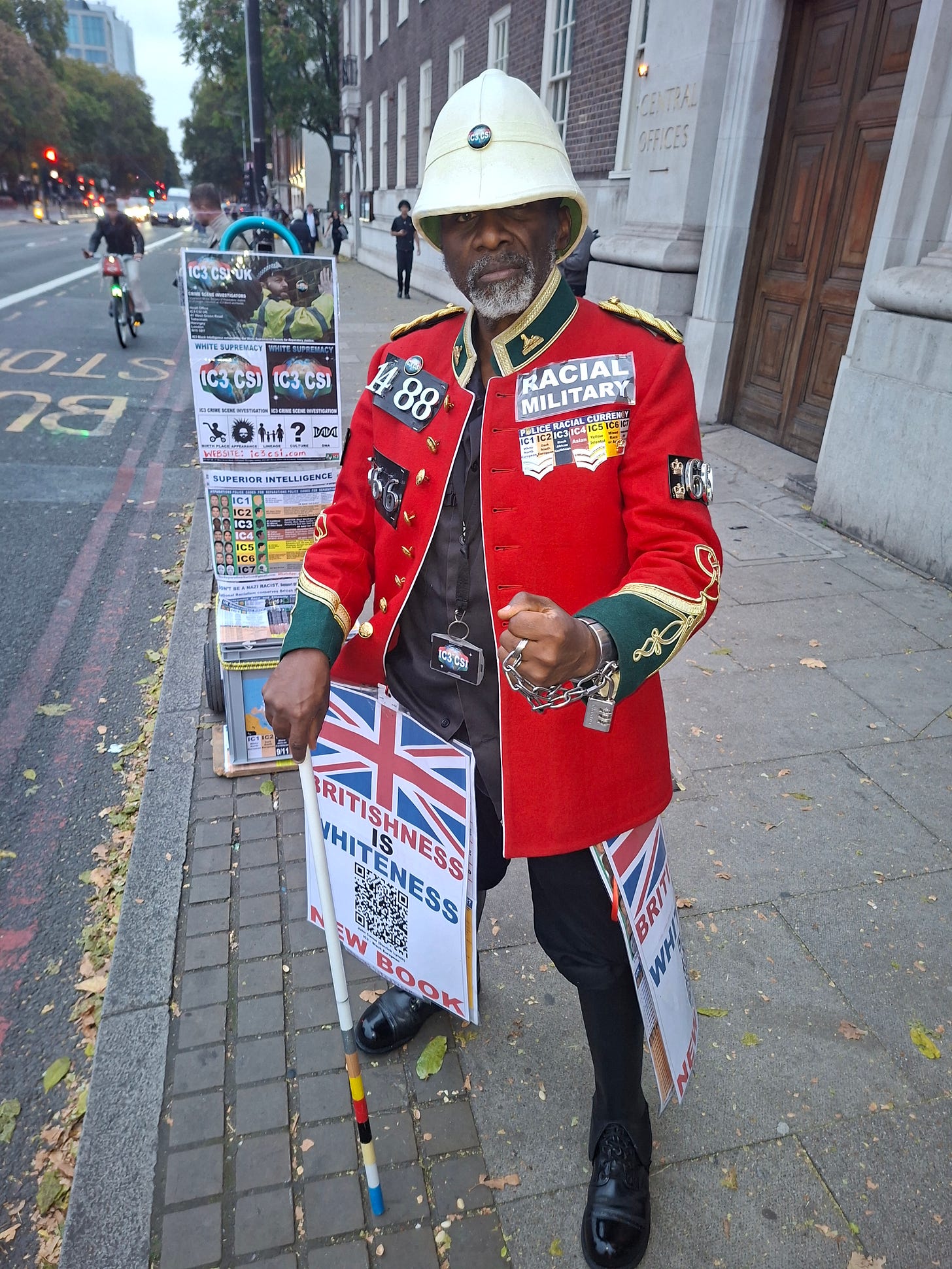
Among the attendees was a campaigner dressed in a red military-style jacket emblazoned with the words ‘Racial Military’.
The man, who’s known as Derrick Lynch and John Canoe, was promoting his book Britishness Is Whiteness, which argues that official UK racial coding systems underpin institutional inequality.
“People think I’m mad,” he told Black Current News, “but I’m only showing what’s in the paperwork. The system doesn’t count slogans, it counts codes”.
His approach underscores a recurring theme at the conference - that reparatory justice must be measurable, accountable and systemically embedded, not just symbolic.
Mr Derrick is fully aware of the attention his striking outfit attracts - and that’s entirely the point.
“When people look at me, it triggers the ancestral memory - that’s what I want. The system of white supremacy still functions,” he said.
Explaining why he attended the Reparations Conference and how reparatory justice should be delivered, Mr Derrick said: “There’s no point in Black or African people getting reparations only to put that money into Barclays or Lloyds.
“Reparations must be delivered to a sovereign Black, African entity with its own central bank.
“Representatives from that body can then negotiate directly with those who owe reparations and payments should be made into that central bank on a claim-by-claim basis.
He added: “Every group has its own story; those stories need to be told and each case properly filed”.


